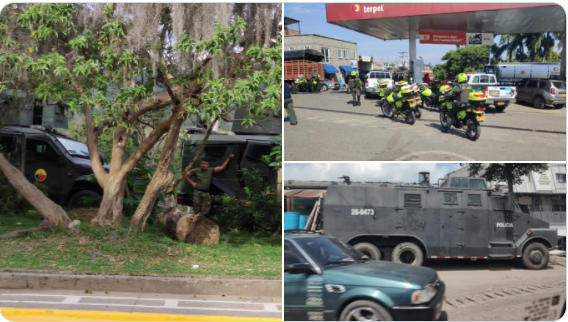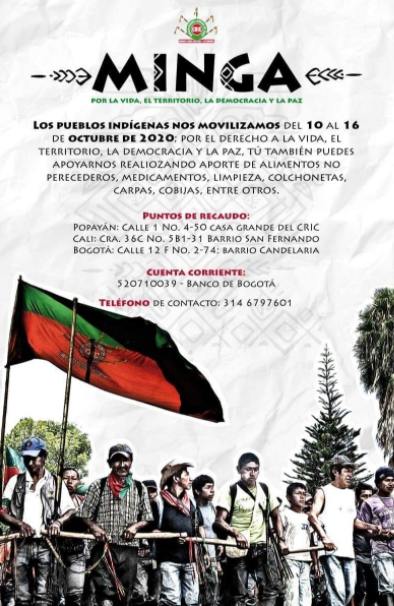
A Minga march for the protection of life, territory, democracy and peace is taking place in Colombia from October 10 to 16.
Minga is a word of Indigenous Quechua origin that refers to a collective effort for the common good and that in Colombia similarly refers to an organized protest for Indigenous rights. The first Minga mobilization was in 2004.
The Oidhaco network of 35 European and international organizations working for the defence of human rights and peace in Colombia has expressed its concern about the risk of violent repression by state security forces against this Minga.
Their statement notes: “The march is taking place after various attempts have been made to engage in dialogue with President Duque, dialogue which is urgent due to the needs of indigenous peoples and Afro-Colombian communities.”
It adds: “We would also like to recall that members of the state security forces and high-ranking Colombian government officials stigmatised the 2019 National Minga, which increased risks for the participants and, in particular, for social leaders belonging to the organisations that coordinated the protests.”
On October 10, Feliciano Valencia, a past leader of the Cauca Regional Indigenous Council (CRIC) and now a Senator, tweeted: “The President’s first response to the political debate raised by the Minga has been to militarize the roads.”
PBI-Colombia accompanies the Luis Carlos Perez Lawyers’ Collective (CCALCP) that has long sought the implementation of the historic T-880 court ruling on “the right to free prior and informed consent, and the rights related to demarcation of land, as well as exploitation of natural resources.”
To read the full statement from Oidhaco, please click here.
For the latest updates on the Minga mobilization, search #Minga2020 on Twitter.

